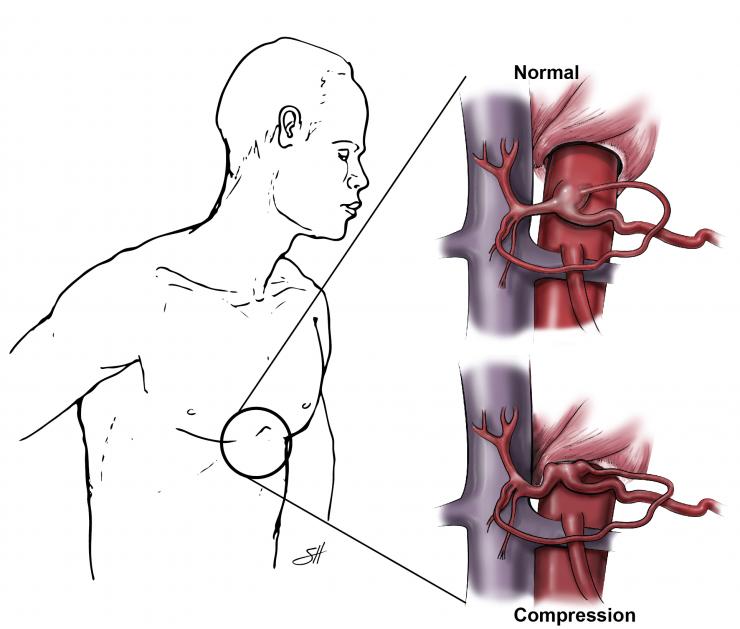What Is Celiac Artery Compression Syndrome?

Celiac artery compression syndrome, also known as median arcuate ligament syndrome, is a condition where a muscular fibrous band of the diaphragm, the median arcuate ligament, compresses the celiac axis, which supplies blood to the upper abdominal organs.
What Are the Symptoms of Celiac Artery Compression Syndrome?
The main symptoms are chronic abdominal pain that has lasted several months, abdominal pain after eating, weight loss, and sometimes an abdominal bruit, or the sound made by blood flowing through an obstruction.
Compression syndrome could be the cause of persistent abdominal pain that has not been treated successfully. This condition is generally not life threatening but is debilitating. It is recommended that a person with the symptoms has a consultation with a vascular surgeon familiar with the disorder.
If you have had abdominal pain for months, especially after eating, and have not treated it successfully, consider consulting with a vascular surgeon about the possibility celiac compression syndrome might be the cause of your problem.
What Tests Are Performed for Celiac Artery Compression Syndrome?
The doctor usually performs a physical exam followed by an imaging study of the visceral and intestinal arteries. Often the first test is a duplex ultrasound which may be followed by a computed tomography (CT) angiogram or a conventional angiogram.
How Is Celiac Artery Compression Syndrome Treated?
Surgery is the recommended treatment. This can be performed from an incision in the upper abdomen which allows the doctor to surgically release the constraining ligament. The procedure can also be performed laparoscopically, in some cases. Sometimes, a bypass procedure is required for revascularization.
Does the Treatment Cure the Disease?
Some people respond better than others. The patients who have significant abdominal pain after eating and have lost a significant amount of weight from the condition usually have a better response to surgical treatment than patients who have less pain and weight loss. Women younger than 60 years also tend to respond better than older patients. It is possible that the condition does not improve after surgery.








